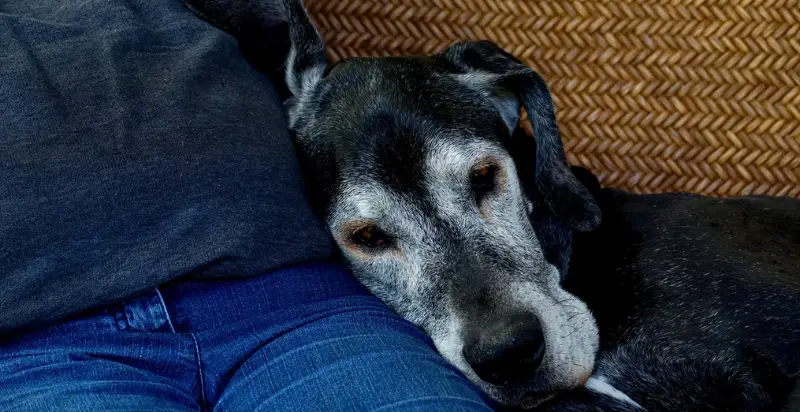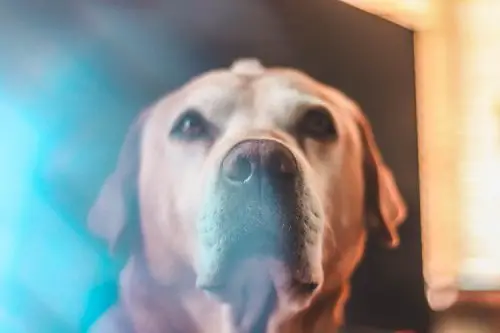Common Senior Dog Health Problems

Most of us avoid thinking about possible health problems in senior dogs because we hope our beloved pets will stay forever young and strong.
Unfortunately, this isn’t the case. Regardless of the breed and size of your dog, they will eventually grow old.
Having an understanding of these problems can better equip you with knowledge on how to take good care of your pet in its senior years. Also, an awareness of potential health problems can help detect them in time so you can get timely treatment for your pet. This might even extend your dog’s life.
Let us discuss some common senior dog health problems that tend to show in their golden years.
Common Senior Dog Health Problems and Solutions
Cancer
The dreaded C-word is common in all breeds of dogs, just of the different kinds. Common cancers in dogs include tumors of the skin and subcutaneous tissues, mammary glands, bone, blood-forming organs, and mouth.
Not all bumps and lumps may be cancerous, but senior dogs have an increased risk. Therefore, it is always a good idea to have strange bumps and lumps ruled out for cancer.
Dementia
Older dogs can show signs of confusion, disorientation, or might bark for no reason. In some cases, they also even feel lost in familiar surroundings.
There isn’t much you can do about dog dementia (also known as Canine Cognitive Dysfunction). However, feeding a nutritious diet rich in omega-3 fatty acid can help improve your pet’s cognition. You can also delay the condition by keeping them mentally stimulated with games, obstacle courses, and regular training.
Failing Kidneys
Chronic kidney disease or CKD is quite common in many dog breeds. However, dogs with CKD can still live comfortably by following a high-quality, low-protein, low-phosphorus diet.
Vets also suggest a prescription diet with higher moisture content. Moisture is important to prevent stones and maintain your pet’s urinary health. You must also take your pet in for regular blood tests and health checkups to slow down the progression of CKD.
Urinary Incontinence
This is usually an issue in older female dogs.
Many old dogs lose voluntary control over their bladder muscles. As a result, you might find puddles of urine in her bed or on the floor or dripping from her vulva.
There are several treatments for urinary incontinence. Most of the time, these are focused on hormone therapy. In some cases, a vet will prescribe phenylpropanolamine to strengthen the urethral sphincter. If both options do not treat the health condition, you might opt for surgery.
Loss of Hearing and Vision
Your dog’s vision and hearing capabilities can diminish as it grows old. Although these are relatively not painful, they can be distressful for your aging pet.
One common cause of vision impairment is cataracts wherein your dog’s eye develops a cloudy film within its crystalline lens due to trauma, inflammation, diabetis mellitus, and other eye disorders. This can cause partial or total blindness, if left untreated.
Since dogs mostly rely on their sense of smell, this may not be a major issue. But, it can be painful watching him bump into furniture or objects.
Sometimes, vets may be able to surgically remove the film on your pet’s eyes. The process is very similar to what is being done with humans. In mild cases, periodic monitoring is done. There are also eye drops that can help control secondary inflammation.
Hearing loss, on the other hand, is more or less permanent. Causes include wax build-up, nerve degeneration, and severe ear infections. But you can take good care of your pet’s ear hygiene to slow down the progression.
Old Dog Behavior Before Death
 Breathing Issues
Breathing Issues
Old dogs start coughing or show difficulty in breathing. These signs occur as their body starts to shut down.
Self-Isolation/Social Detachment
Canine experts believe that dogs know when it is time to die. Some isolate themselves when it is time and might sleep all the time.
Emotional/Psychological Changes
Your dog may act a little bit grumpy at times. He might not appreciate your cuddles and shouts like he used to. If he’s upset, try to understand him more and respect his solitude.
Lack of Coordination
As senior dogs approach their end, they lose their sense of balance. In some cases, they will appear clumsy and unsteady.
When the dog realizes that standing leads to disorientation, he or she might choose to be sedentary.
Knowing When to Say Goodbye
As a pet parent, this can be the toughest decision you’d ever make. But when your pet can no longer do three out of the five of its favorite things (playing Frisbee, greeting you enthusiastically, or eating its favorite treats), it may be time to say goodbye.
While the final decision is yours alone, you can speak to your vet for advice. Vets know when a dog can no longer bear its old age or how much pain it may be in.
Always put your pet’s needs above your own emotions.
We hope this brief guide on common senior dog health problems helps you make an informed choice in this painful matter. In the harrowing event that your beloved pet passes, here’s a guide that might help you through this inevitable circumstance.
